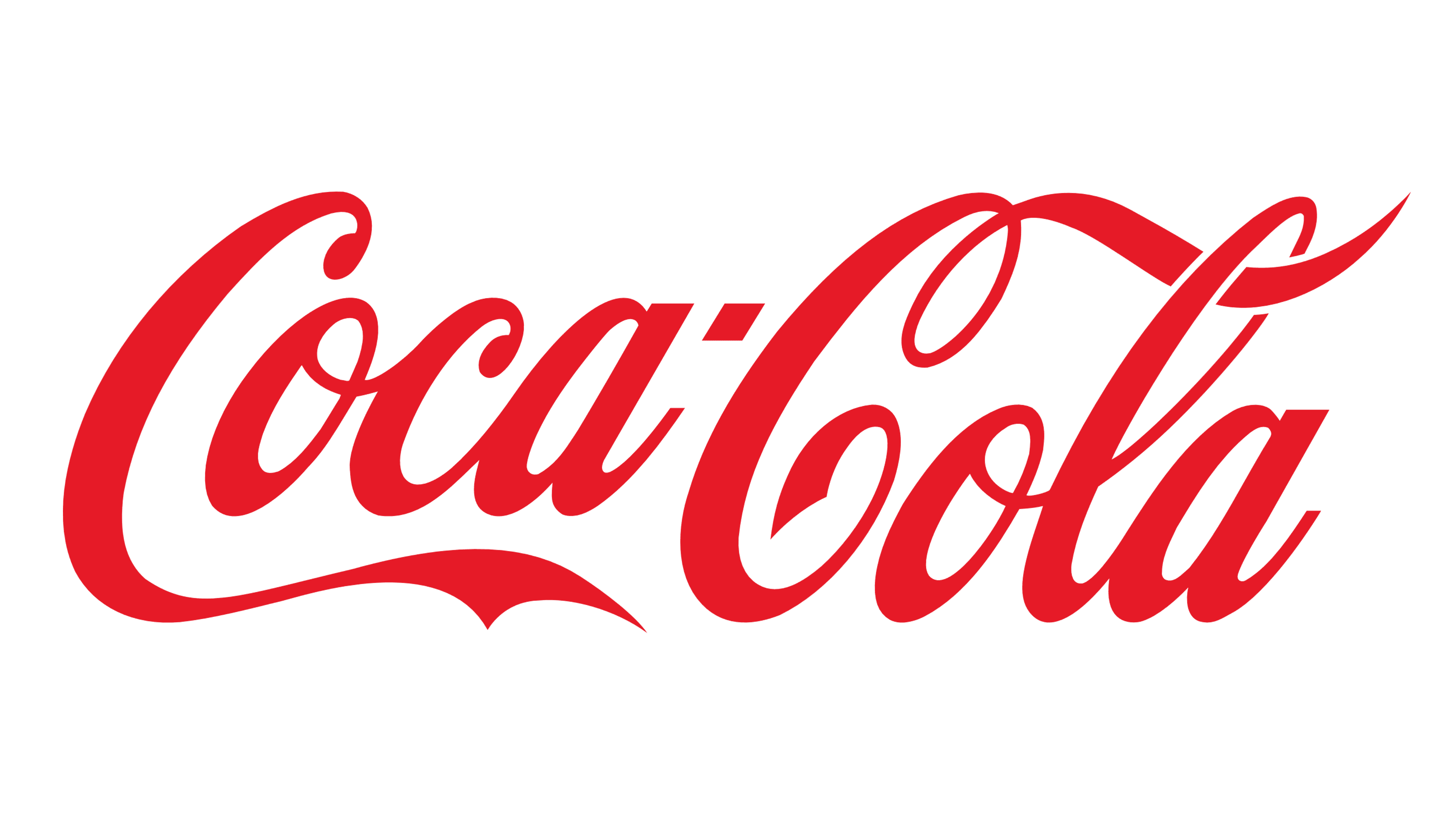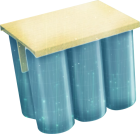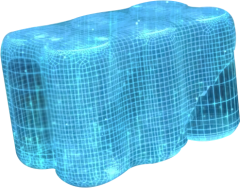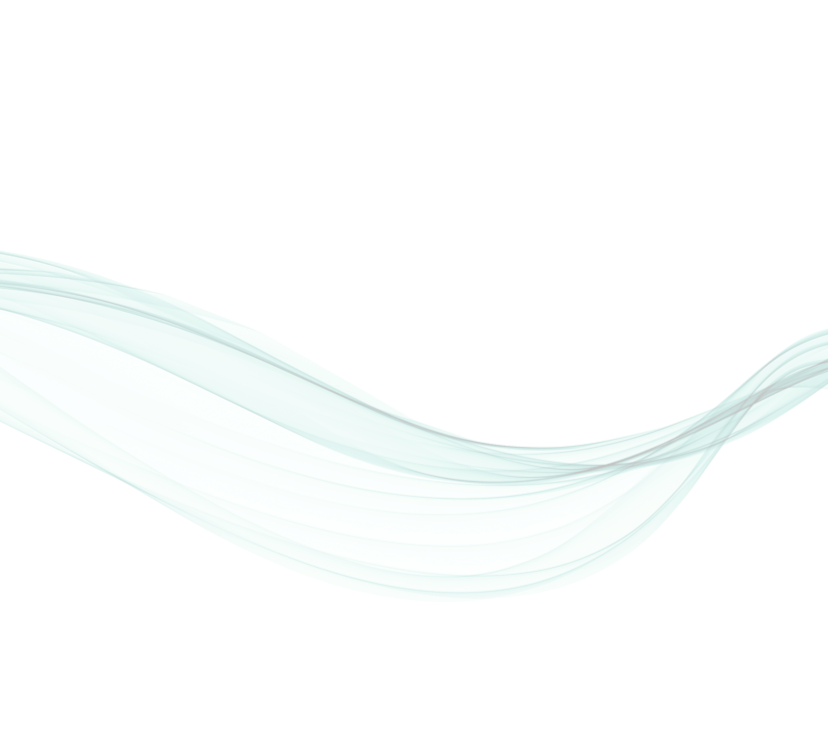More from our Changemakers

Saving 500 tonnes of plastic.
Saving 500 tonnes of plastic.
Coca-Cola HBC Ireland and Northern Ireland continued to eliminate ‘single-use’ plastic shrink wrap from our multi-packs, through our move to KeelClip™ and Q-Flex Card Carton Packs; a move that eliminated almost 500 tonnes of plastic.
You could say our need for shrinkwrap… has shrunk.
You could say our need for shrinkwrap… has shrunk.
The company's commitment to sustainability is evident through their "light-weighting" efforts, which have reduced plastic usage in bottles by 15%, equivalent to saving around 1,200 tonnes of plastic annually. They've also achieved significant progress in recycling, with 83% of plastic bottles and cans in covered areas now being recycled.
Furthermore, they're rolling out R100, a 100% recycled plastic film, for multipack bottles within their Deep RiverRock portfolio, aligning with industry findings that rPET production emits 79% fewer carbon emissions compared to virgin PET.
In 2022, they appointed FoodCloud and FareShare Northern Ireland as official charity partners, underscoring their commitment to reducing food waste and supporting charitable initiatives.
Coca Cola Plastic Pledge Challange.
To Prevent. To Support. To Simplify. To Increase. To Reduce.
The company's commitment to sustainability is evident through their "light-weighting" efforts, which have reduced plastic usage in bottles by 15%, equivalent to saving around 1,200 tonnes of plastic annually. They've also achieved significant progress in recycling, with 83% of plastic bottles and cans in covered areas now being recycled.
Furthermore, they're rolling out R100, a 100% recycled plastic film, for multipack bottles within their Deep RiverRock portfolio, aligning with industry findings that rPET production emits 79% fewer carbon emissions compared to virgin PET.
In 2022, they appointed FoodCloud and FareShare Northern Ireland as official charity partners, underscoring their commitment to reducing food waste and supporting charitable initiatives.
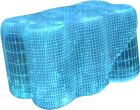
Coca Cola Plastic Pledge Objectives
Coca Cola Plastic Pledge Objectives
Achievements for 2022
Our vision to create a circular economy for our packaging, is
a world with dramatically lower carbon emissions and climate impacts. Because packaging accounts for 56% of our overall carbon footprint, our World Without Waste efforts are essential to meeting our science-based target and our NetZeroby40 commitment. We’re reducing our carbon footprint by lightweighting our packaging and incorporating more recycled and renewable material.
We use 46% less virgin plastic today than we did in 2017 and in 2023 we aim to significantly accelerate this further as we continue our journey to deliver the commitment we laid out in our Repak Members’ Plastic Pledge on packaging design, including reducing plastic packaging waste by minimizing avoidable single-use plastic. We continued to eliminate ‘single-use’ plastic shrink wrap from our multi-packs, through our move to KeelClipTM and Q-Flex Card Carton Packs; a move that eliminated 496 tonnes of plastic. Through continued ‘light-weighting’, our plastic bottles use 15% less plastic. Our light-weighting initiatives reduce plastic use by approximately 1,200 tonnes annually.
We continued to source point-of-sale materials made from recycled materials and focused on shifting from single-use point- of-sale materials to permanent solutions and increase the use of shelf-ready packaging for their stores, by way of ‘mobile units’ (MUs). This continued roll out of mobile units will continue to eliminate the use of single use plastics from our tertiary packaging annually.
Plans for 2023
In Q2 2023, we will extend our use of KeelClipTM across our Schweppes multi-pack can range eliminating a further 50 tonnes of plastic annually.
n Q3 2023, we will further lightweight our Deep RiverRock range with a focus on our 500ml bottles and larger Take-Home Coca- Cola owned portfolio.
We are also continuing to trial new packageless dispensed formats with our ‘At Work’ customers, encouraging the use of reusable beverage vessels to eliminate the need for polyethylene lined paper cups.
Achievements for 2022
World Without Waste also sets out an ambitious target for packaging collection and recycling. By 2030, we will collect and recycle the equivalent of every bottle we sell.
Over the last year, we have worked closely with the wider beverage and retail sector to establish DRS Ireland (Re-Turn), an organisation that has been created to ensure the smooth roll- out and successful operation of Ireland’s Deposit Return Scheme. With representation on the Board of Re-Turn, Coca- Cola HBC has played an integral role in bringing together key operational partners from right across the drinks supply chain, including producers and importers right through to retail businesses. We are working with them to ensure the scheme is designed and implemented effectively and delivers a world leading deposit return system for Ireland.
We are also supporting the development of a PET2PET or ‘bottle- to-bottle’ recycling facility in Ireland, which would support
the value chain for plastic recycling, while ensuring a regular feedstock of high-grade recyclate, which we can invest back into our bottles.
We are continuously trying to engage consumers to ensure that we keep them actively involved in the big issues facing society – and that includes packaging. We know that consumers have an important role to play in ensuring that our packaging
is collected, sorted, and recycled and does not end up as litter
or in the oceans. With this in mind and building on the success
of our Dublin #CircleCity (A partnership with environmental charity Hubbub and The Coca-Cola Foundation to fund on-the- go recycling infrastructure across the city), we further invested
in the scheme, doubling the number of recycling stations. Since installation 83% of plastic bottles and cans in the areas covered by the scheme now end up in the recycling bins, as opposed to the general waste.
Finally, we are continuing to use the power of our brands to encourage greater behavioural change and consumer awareness by further integrating recycling messages across all Coca-Cola and Deep RiverRock advertising and on-pack. 72% of plastic was recycled.
Plans for 2023
In late 2023, we will begin the transition to tethered closures on all beverage containers of up to three litres. This is in line with the EU SUP Directive’s tethered closures rule to have lids that ‘remain attached’ to the container during its lifetime, to reduce the caps ending up in the environment as litter and increase their recycling. In 2023, we will further invest in #CircleCity
with the aim of bringing the programme to other cities across Ireland. We will also continue to encourage consumers to play their part in recycling and keeping our environment free of litter and are seeking innovative ways to partner with our customer to raise awareness of the benefits of keeping resources within the recycling chain. We will also bring greater messaging instore and on packs with bold messaging in relation to recyclability and recycled content. We are discussing partnership opportunities with key customers to help shoppers make informed choices about the sustainability of their beverage packaging.
Achievements for 2022
We have interrogated all aspects of our supply chain to ensure that our packaging is as sustainable as possible. All our primary packaging, bottles, and cans are 100% recyclable and we are committed to maintaining this. In 2022, we began the roll-out of R100 100% recycled plastic film for our multipack bottles across our Deep RiverRock portfolio. We continue to access our wider use of ‘single use’ plastic shrink for tertiary packaging, actively seeking solutions to reduce and/or eliminate the non-recyclable plastic within our supply chain. We removed 10 tonnes of difficult to recycle plastics and composites.
Plans for 2023
We continue to look at how we can optimise our pallets and reduce the amount of wrap we use to transport our goods to customers. If successful we could reduce our use of plastic pallet wrap by an average of 39% – saving hundreds of tonnes of material.
Achievements for 2022
Over the last number of years, we have continued to invest extensively in recycled plastic (rPET) which is significantly more costly than virgin PET (is almost double that of virgin PET 1).
To date, we have achieved 52% recycled PET integration across our plastic portfolio. By converting post-consumer waste into a valuable resource, rPET excels in sustainability, keeping resources in use for as long as possible. As a material, recycled PET excels
in its sustainability credentials as it ensures that resources are kept in use for as long as possible. We believe that our investment in rPET will lead to a closed loop for packaging; acknowledging that PET packaging need not become ‘waste’, but rather material with a value proposition which can use again through effective recycling. A recent industry study indicated that the production of rPET produced 79% less carbon emissions compared to virgin PET.Similar results were revealed by the Association of Plastic Recyclers who released a report in late 2018 illustrating that
using recycled plastic reduced greenhouse emissions by 67%3 – alongside reducing energy consumption. The results demonstrate both a clear environmental and business incentive for companies.
Plans for 2023
We continue to partner with several Waste Management and Recycling companies to explore the potential to establish a local source of rPET supply in Ireland with the development of Ireland’s first bottle-to-bottle plastic recycling plant. This will enable us to fully close the loop on PET recycling.
Achievements for 2022
We strive to avoid and minimise food loss and food waste
across our entire value chain, in line with the UN Sustainable Development Goal 12.3. However, where we have been unable to prevent food waste we work with various charitable organisations and partners to redistribute products close to expiration to safely and ethically dispose of surplus stock. In 2022, we appointed FoodCloud and FareShare Northern Ireland as our official
charity partners. As well as supporting financially, we continue to provide them with surplus stock which is redistributed across 870 frontline charities. In the last 12 months alone, we have donated over 3⁄4 million bottles of beverages. This not only supports the challenge of food waste and food security, but it also helps reduce greenhouse gas emissions by c. 263tn CO2-avoidance.
In 2022, we also made a financial donation of over €50k to FoodCloud and FareShare.
Plans for 2023
We are committed to maintaining the integrity of our packaging throughout 2023 as we accelerate our sustainability initiatives. We will continue to donate stock to the Simon Community’s foodbank, FoodCloud and FareShare throughout the year to reduce food waste in our supply chain.
In addition to this, we are supporting FoodCloud‘s development and implementation of a three-year Food Sourcing Strategy for Ireland, to unlock the potential of food redistribution across the supply chain and double the volume of food redistributed.
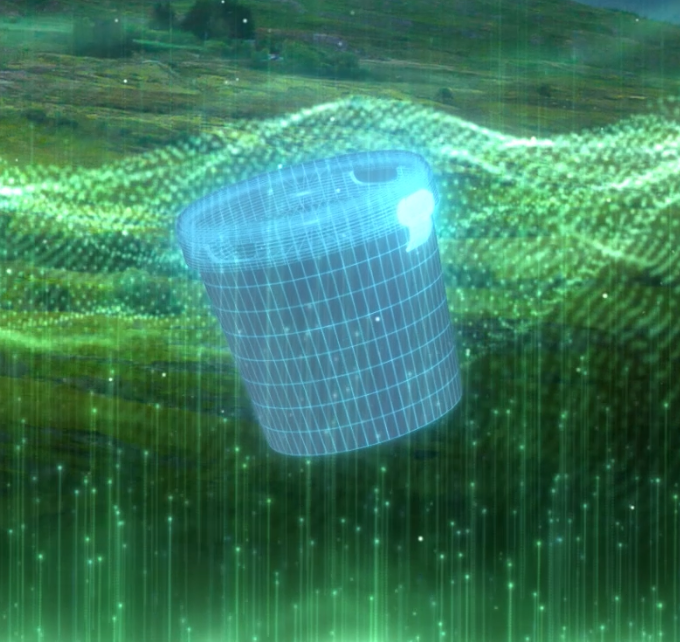

Case Study
Lidl
Lidl began to package own-brand yogurt in pots made from recyclable plastic, saving ___ tonnes of non-recyclable plastic packaging a year.
Read Case Study
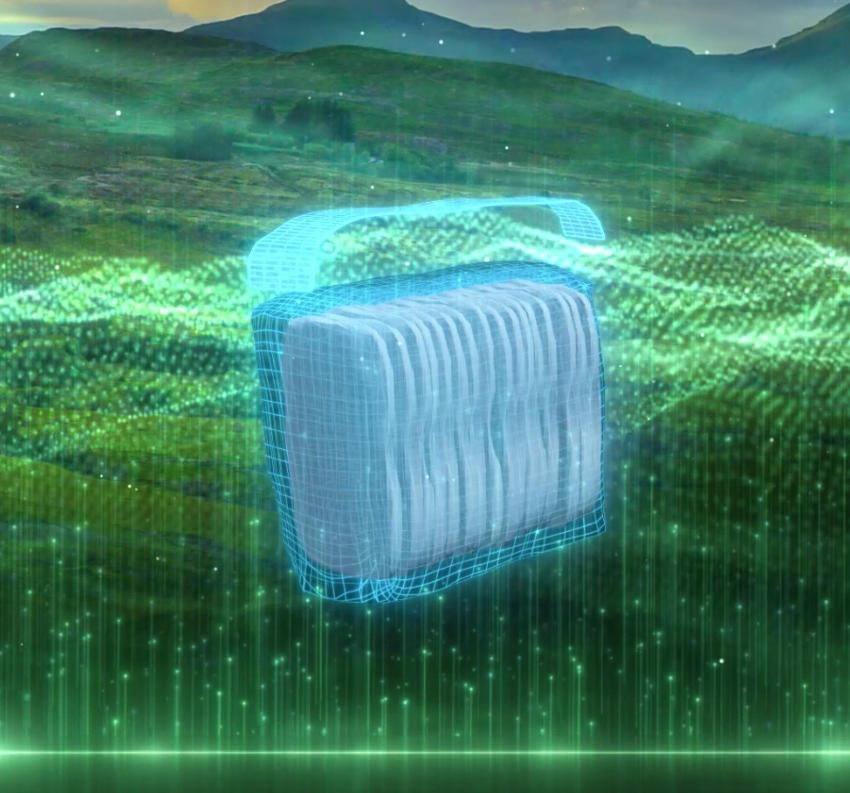

Case Study
Tesco
We have removed the handles on packs of Fred & Flo Nappies, saving 36 tonnes of plastic.
Read Case Study
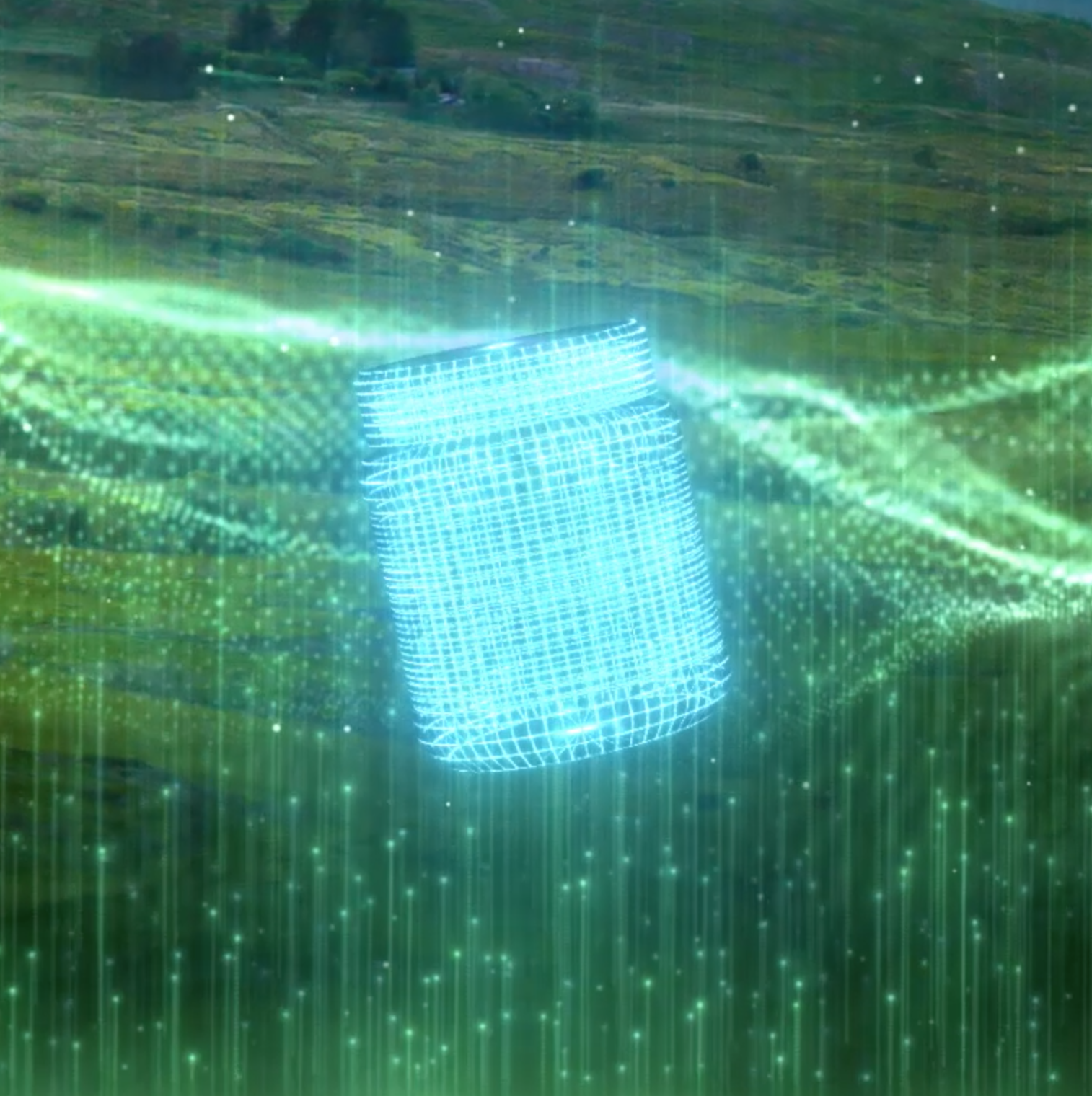

Case Study
Aldi
Moved peanut butter from plastic to glass jars saving 13 tonnes of plastic per annum.
Read Case Study
